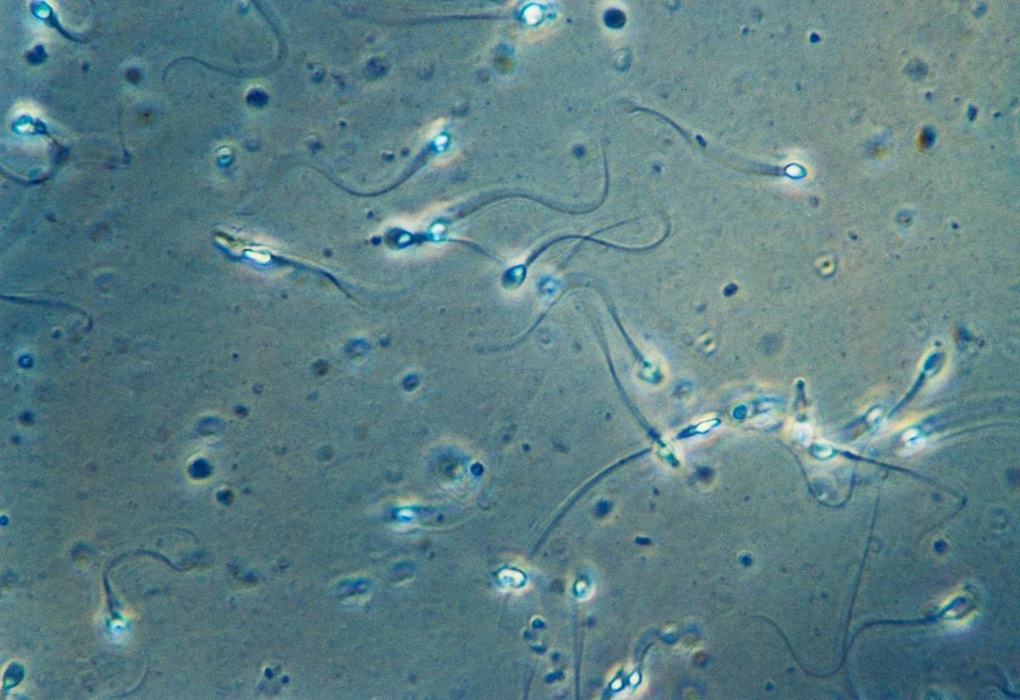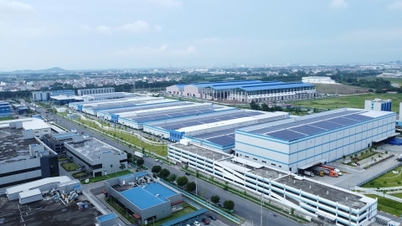A study published in the journal Nature recently revealed a worrying link between age and the quality of men's sperm. According to a team of British scientists , men's sperm begin to accumulate harmful genetic mutations over time, starting at age 43.
Researchers analyzed sperm samples from 81 healthy men, aged between 24 and 75. Using high-precision DNA sequencing techniques, the team discovered that the number of genetic mutations in sperm stem cells increased with age. On average, about 1.67 new mutations appeared each year.
Specifically, in the group of young men (26-42 years old), about 2% of sperm carry mutations that can cause disease. In the middle-aged group (43-58 years old), this rate increases to about 3-5%. By the age of 70, the number reaches 4.5%.
"Our findings suggest a potential genetic risk that increases with paternal age. Some DNA changes not only persist but also thrive in the testes, causing children born to older fathers to unknowingly carry many harmful mutations," said Professor Matt Hurles, Director of the Wellcome Sanger Institute (UK), co-author of the study.
This phenomenon is called “selfish sperm”, meaning that sperm cells with mutations have a biological advantage, helping them reproduce faster and compete more effectively with normal sperm.
This means that as people age, the percentage of sperm carrying genetic mutations not only increases in number but also gets "priority" in the sperm production process, increasing the risk of genetic abnormalities for the next generation.

The older you are, the more likely your sperm is to carry mutations that negatively affect the health of future generations (Photo: Getty).
Mutated genes have been linked to rare genetic syndromes such as Apert, Noonan and Costello syndromes, as well as neurodevelopmental disorders such as autism, according to the authors. Previous studies have also shown that fathers over 40 are 51% more likely to have a child with autism than fathers under 30.
This is particularly significant given the rising age of fatherhood. Statistics in the UK show that the proportion of men becoming fathers after the age of 40 has doubled over the past four decades, from 4.1% in 1972 to 8.9% in 2015.
The trend of having children later due to work pressure, financial pressure or the desire for more stability before starting a family inadvertently puts many people at higher genetic risk.
Scientists stress that although research shows an increase in harmful mutations with age, not all sperm with mutations are able to conceive. Some mutations can prevent fertilization or lead to early miscarriage. Therefore, the actual risk to the child depends on many other factors.
Still, the study is an important warning for people planning to have children later in life.
“This is a reminder that a father's age has just as significant an impact on the genetic health of his children as a mother's age,” added Professor Hurles.
Experts also said that this discovery opens up a new direction of research on male reproductive health, and at the same time contributes to shaping medical recommendations on family planning in the future.
Source: https://dantri.com.vn/suc-khoe/kham-pha-moi-ve-do-tuoi-tinh-trung-bat-dau-xuong-cap-20251022165034024.htm



![[Photo] Party Committees of Central Party agencies summarize the implementation of Resolution No. 18-NQ/TW and the direction of the Party Congress](https://vphoto.vietnam.vn/thumb/1200x675/vietnam/resource/IMAGE/2025/10/27/1761545645968_ndo_br_1-jpg.webp)


![[Photo] National Assembly Chairman Tran Thanh Man receives Chairman of the House of Representatives of Uzbekistan Nuriddin Ismoilov](https://vphoto.vietnam.vn/thumb/1200x675/vietnam/resource/IMAGE/2025/10/27/1761542647910_bnd-2610-jpg.webp)
































































































Comment (0)